The riches of Dartmoor dung
There’s something about dung which should worry you. In my childhood the local fields of animals had rich dung pats, full of holes from beetles buried in the stuff. There were flies buzzing from pile to pile and fungi with strange eyelashes or egg-shaped caps bursting from the surfaces. Now, not so much. Much animal dung sits there, sterile and devoid of life, waiting to be washed away by the rain. Farm animals are treated with anti-parasitic drugs and antibiotics and these come out in their dung, inhibit the natural process of recycling, and potentially breed antibiotic-resistant bacteria. The collapse in the last few decades in the amount of insect life, which supports much other bird, mammal and reptile life, is partly caused by drugs in farm animals. Motorway services and garages used to sell products to remove fly-squash from windscreens, the level of invertebrate life was so high. Now, there’s no need, and the rest of the natural food chain suffers as a result.
Ivermectin is one commonly used drug. It is used to kill parasitic worms in cattle. It’s vital that runoff from treated cattle doesn’t reach lakes or rivers, as it can affect aquatic insects and fish, and that containers are safely disposed of. Invermectin is also used to treat head lice and scabies in humans. Over a million doses of it are delivered every day across the world. It appears to be superficially safe for the individual human to take. What is the cumulative effect on the natural world of all of those doses? It’s a very useful drug to support our current unsustainable way of living. In addition, there are currently double-blind randomized clinical trials of Ivermectin for treatment of adults with severe COVID-19. Expect usage to increase.
Dung is meant to be teeming with life. As you must know by now, I’m the sort of man who would happily read a copy of Insects of the British Cow-Dung Community, especially when it’s written by someone whose surname is Skidmore. It’s great fun to see what should be living in a cow pat, so here’s a link.
Out on Dartmoor at Challacombe Farm, the cow pats are alive with invertebrates and these fungi are rearing their pretty heads.
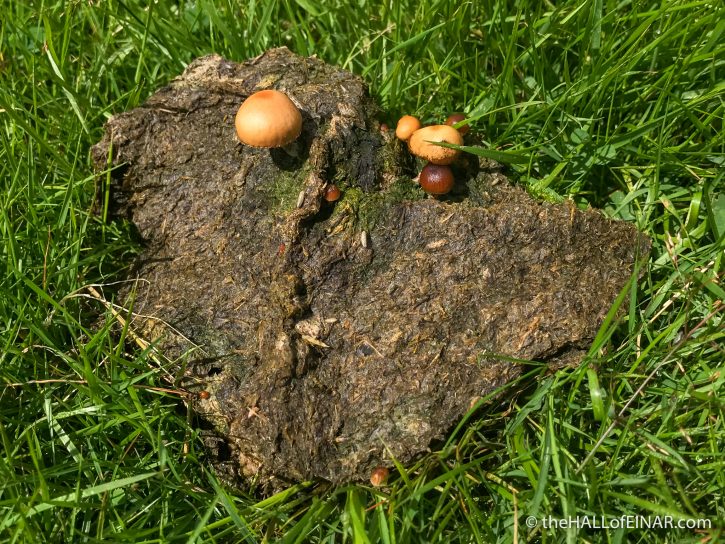
They are Deconica coprophila, the Dung-Loving Psilocybe.
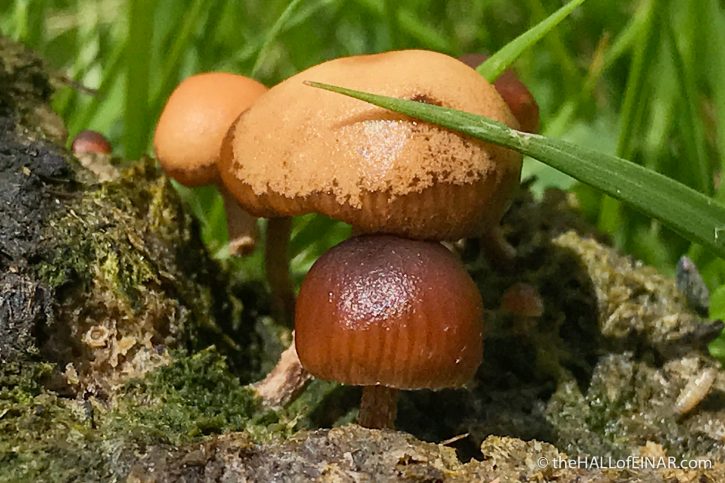
Unlike other Psylocybes, these don’t contain the psychedelic compound psilocybin, but they give me a trip just seeing them.
More Fungi
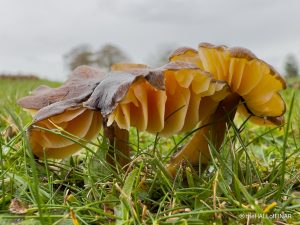 A date with Waxcaps A trip to Somerset to see my friend Martin had the unintended bonus of a walk and a crop of… read more
A date with Waxcaps A trip to Somerset to see my friend Martin had the unintended bonus of a walk and a crop of… read more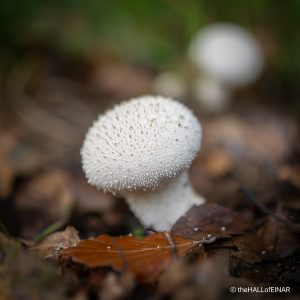 Woodland gem-studded marvels It's 47 years ago today that I first noted down Common Puffballs in my nature notebooks. The tiny gem-like spikes… read more
Woodland gem-studded marvels It's 47 years ago today that I first noted down Common Puffballs in my nature notebooks. The tiny gem-like spikes… read more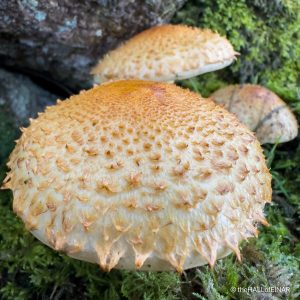 ‘Tis the season for Shaggy Scalycaps It's 47 years today since I first saw Shaggy Scalycaps and wrote about them in blue biro with a pencil… read more
‘Tis the season for Shaggy Scalycaps It's 47 years today since I first saw Shaggy Scalycaps and wrote about them in blue biro with a pencil… read more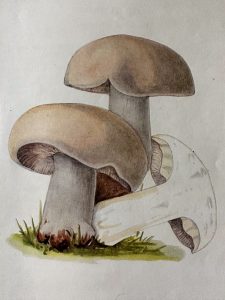 Cry “God for Harry, England and St George’s Mushrooms.” Tomorrow is St George's day, which is an important day in my calendar. That's not because I'm particularly nationalistic, swept… read more
Cry “God for Harry, England and St George’s Mushrooms.” Tomorrow is St George's day, which is an important day in my calendar. That's not because I'm particularly nationalistic, swept… read more Dead Man’s Fingers It's cold on Dartmoor but it's always worth making it to Fingle Bridge. I'm looking forward to a pint in… read more
Dead Man’s Fingers It's cold on Dartmoor but it's always worth making it to Fingle Bridge. I'm looking forward to a pint in… read more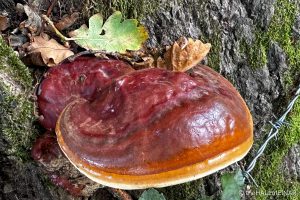 A Red Belted Conk There's the familiar orange-red band on this Red Belted Conk. Lovely, isn't it? Its scientific name is Fomitopsis pinicola. It… read more
A Red Belted Conk There's the familiar orange-red band on this Red Belted Conk. Lovely, isn't it? Its scientific name is Fomitopsis pinicola. It… read more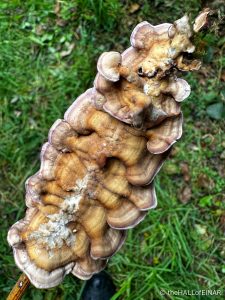 Purple Curtain Crust I do love a good fungusy twig. Here's one with Purple Curtain Crust, Chondrostereum purpureum, rippling on it like a… read more
Purple Curtain Crust I do love a good fungusy twig. Here's one with Purple Curtain Crust, Chondrostereum purpureum, rippling on it like a… read more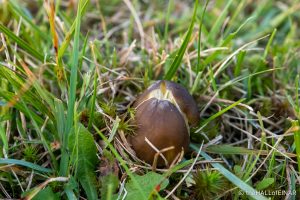 One of Britain’s rarest fungi So you think it doesn't look like much? I think it looks fabulous. It's growing in the short grass around… read more
One of Britain’s rarest fungi So you think it doesn't look like much? I think it looks fabulous. It's growing in the short grass around… read more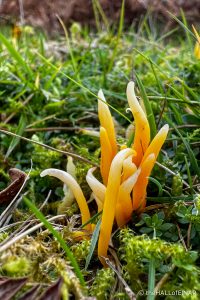 Yellow fingers grow from the short sward There are apricot-yellow fingers of fungus growing in the short sward at Emsworthy Mire. Fabulous, aren't they? They are the… read more
Yellow fingers grow from the short sward There are apricot-yellow fingers of fungus growing in the short sward at Emsworthy Mire. Fabulous, aren't they? They are the… read more